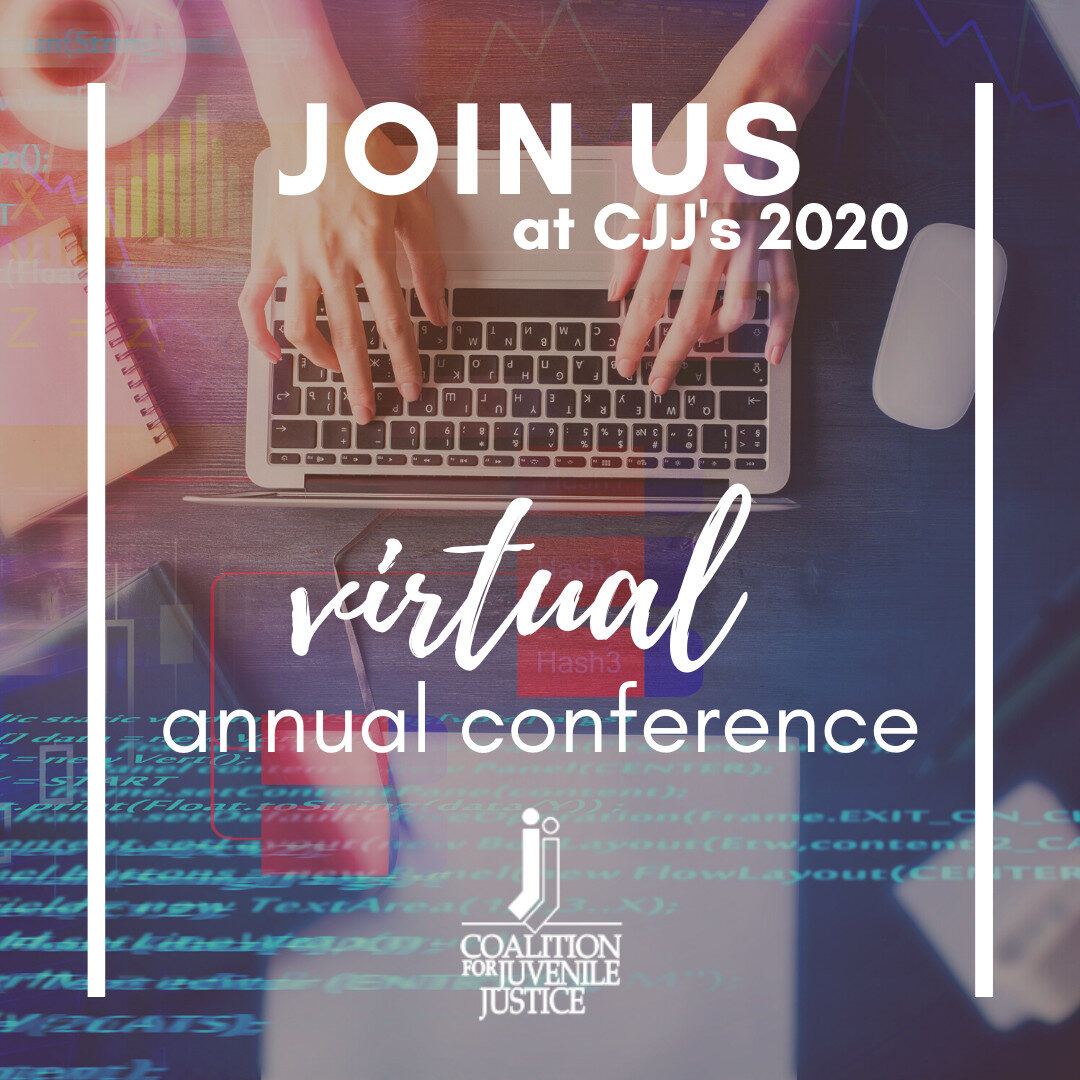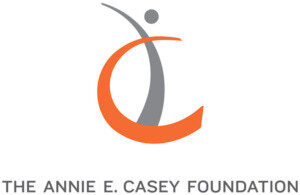2020 Virtual Annual Conference
Location:
Virtual
Date:
October 30-31, 2020
CJJ’s 2020 Annual Conference and Council of State Advisory Groups
Dreaming Big Together: Youth Justice Reimagined

To view the conference agenda, click here.
Each year, the Coalition for Juvenile Justice (CJJ) hosts a national conference uniquely focused on improving juvenile justice and delinquency prevention systems, services, practices, and policies. More than 400 juvenile justice practitioners and advocates from across the U.S. and its territories are accepted to join together for this unique virtual event.
CJJ’s 2020 Annual Conference focused on the latest research, developments, and challenges facing our field today. Specifically, the conference focused on:
- How can states and communities serve as leaders in shaping a better juvenile justice system for our most vulnerable youth?
- How can we improve collaborations with young people with lived experiences in the systems we work with?
- What can be done to build on successes and continue to improve systems so that they best serve young people, including those touching multiple systems?
- What role do advocacy and public health play as communities seek to improve services and provide for trauma-informed care that addresses and heals multi-generational trauma?
CJJ’s 2020 Annual Awards Ceremony. We honored 2020 awardee’s on November 19th for their outstanding work in the Juvenile Justice System.
Each year, CJJ recognizes leaders in the field of juvenile justice through our Annual Awards. The Tony Gobar Award is given in honor of a state juvenile justice specialist who has done outstanding work to improve juvenile justice. The A.L. Carlisle Child Advocacy Award is awarded to an individual who has made outstanding contributions to youth, to juvenile justice improvement efforts, or in the broader area of juvenile justice and delinquency prevention concerns. The Spirit of Youth Award recognizes and celebrate a young adult who overcame personal obstacles in their life, but is now making significant contributions to society.
To view the awards program, click here.
THANK YOU to our sponsors and exhibitors!


Conference Resources
Addressing the Intersection of Juvenile Justice and Youth Homelessness
Each year, nearly 1 million young people become involved with law enforcement and/or the justice system. In some cases, this involvement may be due to lack of shelter or other necessities. This workshop explorers the link between juvenile justice and youth homelessness, CJJ’s Collaboration for Change project, and how states can take steps towards ending the intersection and provide better outcomes for all youth.
“But We Already Divert a Lot of Youth!”: Revisiting Diversion with an Intentional Focus on Race, Equity, and Inclusion
Overrepresentation of youth of color begins at the earliest stages of the youth justice system and almost always worsens as youth move deeper into the system. To achieve significant reductions in racial and ethnic disparities, we must focus efforts on the front end of the system. Take away practical (and proven!) approaches for using diversion as an intentional strategy for reducing racial and ethnic disparities at the state and local level in this session.
Presenters:
Jason Szanyi, Deputy Director, Center for Children’s Law and Policy
Tiana Davis, Policy Director for Equity and Justice, Center for Children’s Law and Policy
JJDPA Reauthorization: The Latest on Jail Removal Reforms
In 2018, the JJDPA was reauthorized for the first time since 2002. One of the key updates to the law includes a provision on strengthening the jail removal/sight and sound provisions to include youth charged as adults. States have until December 2021 to return youth charged as adults to the custody of juvenile justice systems, except in cases where it is in the “interest of justice”. As a follow-up to last year’s presentation, learn about the federal law and strategies for local jails to “get to zero” by 2021, how that looks in practice, and what states have taken action since the passage of the updated Act.
Presenters:
Brett Peterson, Director, Utah Division of Juvenile Justice Services
Charles Parkins, Deputy Associate Commissioner, NYC Administration for Children’s Services
Tim Roche, Associate Commissioner, NYC Administration for Children’s Services
Marcy Mistrett, CEO, Campaign for Youth Justice
Kentucky Court Designated Worker Program: Addressing Racial & Ethnic Disparities During COVID-19
Youth of color are disproportionally impacted by the juvenile justice system. Now, more than ever, it is imperative to continue the work to address these disparities through the COVID-19 pandemic. This presentation provides an in-depth look at how Kentucky’s Court Designated Worker Program is addressing the racial and ethnic disparities throughout every level of the juvenile justice system and how their work is continuing through COVID-19.
Presenters:
Pastor Edward L. Palmer Sr., National Chair, Coalition for Juvenile Justice
Rachel Bingham, Executive Officer, Department of Family & Juvenile Services, Kentucky Administrative Office of the Courts
Reducing Populations and Impacts on Jurisdiction Long Term
Juvenile and family court judges play a critical role in the lives of youth and families who come into contact with the courts. Judge Steven Teske shares his insights on how he has significantly reduced the juvenile detention population in Clayton County over the past several years. This presentation addresses the trends in juvenile arrests and incarceration rates; the importance of reducing youths’ involvement in the juvenile justice system, including strategies, approaches, and tools that are critical to reducing system involvement; and how to implement the resources using a collective decision-making approach.
Presenter:
Hon. Steven Teske, Chief Presiding Judge of Clayton County Family Court and Immediate Past National Chair for the Coalition for Juvenile Justice
Tribal Youth & Juvenile Justice: Partnership Driven Solutions
American Indian and Alaska Native youth (tribal youth) are at a much greater risk of being placed in the juvenile justice system than their non-tribal peers. Tribal youth are over-represented in federal and state detention facilities, which are not equipped to address or meet their needs. This presentation provides an overview of tribal nations, the history of juvenile justice in Indian Country, and tribal notification, including specific state examples.
Presenter:
Kelbie Kennedy, Policy Counsel (Choctaw Nation of Oklahoma), National Congress of American Indians
Additional Resources:
NCAI’s Tribal Juvenile Justice Resource Webpage
NCAI Tribal Juvenile Justice Background and Recommendations Brief
NCAI Policy Research Center, American Indian and Alaska Native Youth in the Juvenile Justice System: A Guide to the Data
The Talking Stick Podcast, Tribal Juvenile Justice Episode 2